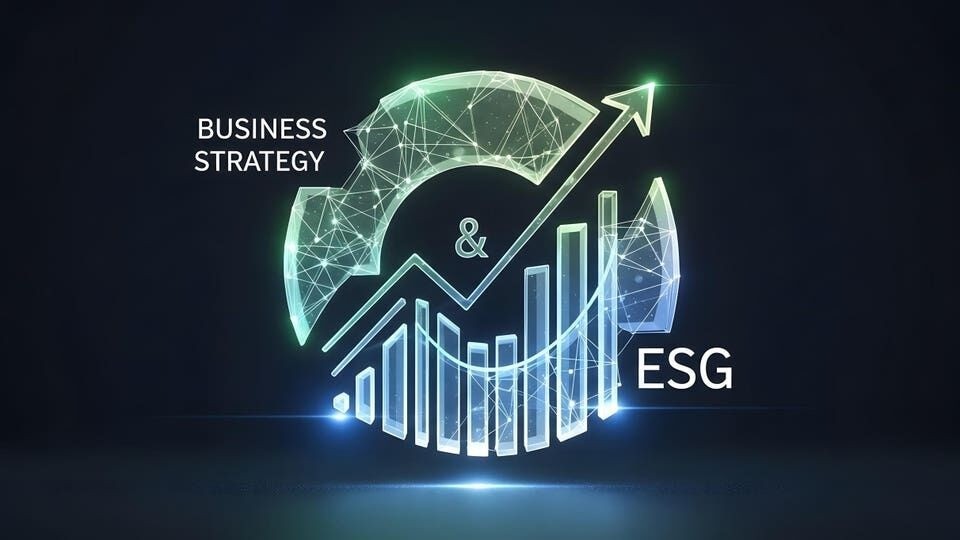3 Ways Every Company Should Prepare For The Internet Of Things
2 July 2021
With the global Internet of Things (IoT) market being valued at $164 billion in 2018 – and still rising sharply – it’s no wonder companies want to get in on the IoT act. But what might this entail for the average company? How can your business capitalise on this massive tech trend? Read on to find out.

What is the IoT? The 30-second explainer
The IoT refers to the ever-growing network of smart, connected devices, objects, and appliances that surround us every day. These devices are constantly gathering and transmitting data via the internet – think of how a fitness tracker can sync with an app on your phone – and many are capable of carrying out tasks autonomously.
A smart thermostat that intelligently regulates the temperature of your home is a common example of the IoT in action. Other examples include Amazon Echo and similar smart speakers, smart lightbulbs, smart home security systems; you name it. These days, pretty much anything for the home can be made “smart,” including smart toasters, smart hairbrushes and, wait for it, smart toilets.
Wearable technology, such as fitness trackers or smart running socks (yes, these are a thing too), also fall under the umbrella of the IoT. Even cars can be connected to the internet, making them part of the IoT.
Market forecasts from Business Insider Intelligence predict that there will be more than 64 billion of these connected devices globally by 2026 – a huge increase on the approximately 10 billion IoT devices that were around in 2018. If that prediction comes true, your business will need to be ready.
Preparing your company for the IoT trend – in three steps
The following steps will help you assess how your company might benefit from the IoT.
Step 1: Revisit your business strategy
If you’re going to implement new business processes or perhaps even alter your business model to take advantage of a tech trend, there has to be a valid reason for doing so. And this is where your overarching business strategy comes in. Therefore, before diving into any tech trend, it’s worth taking a step back and revisiting your business strategy. In other words, remind yourself of what it is your business is trying to achieve and then consider how the IoT could help you achieve those goals.
For example, if one of your strategic goals is to increase manufacturing output, you could consider installing smart sensors on manufacturing equipment to monitor machine performance and predict maintenance issues before they arise. Such “predictive maintenance” often helps companies reduce machine downtime.
Step 2: Consider opportunities for smart products
If you already make products, think about how you could make those products more intelligent. In an age where pretty much anything can be made smart, you may find your customers don’t just want more intelligent solutions – they may well expect them.
And what if you’re a service-based company? Well, I still wouldn’t overlook this step. Many companies are finding ways to deliver a more intelligent service, thanks to the IoT. One health insurance company is incentivising customers with free Apple Watches that track their health and activity data. Customers benefit from personalised health recommendations and financial rewards, while the insurer benefits from healthier clients who make fewer health insurance claims. Win-win!
Step 3: Think about the data involved
The IoT creates enormous amounts of data, so you’ll need to consider how you’ll prepare for and cope with that data. This includes:
- Storing data – i.e., do you have the computing power to store all that data?
- Analysing data – how will you make sense of the data to deliver business advantages? Thankfully, there are many off-the-peg analytics solutions designed for IoT-related data.
- Sharing data with those who need it – if your company is going to capitalize on all this data (for example, to improve manufacturing output or perhaps better understand your customers), then you must consider who within the company will need access to the data.
- Securing data – one of the biggest disadvantages of IoT devices is the security risk they pose. The spread of the IoT has been a boon for hackers who can easily target these devices (many people neglect to even set a password on their IoT devices). You’ll, therefore, need to consider how best to secure your devices, how to help your customers be more secure, and what to do in the event of a breach.
By following these three steps, you can begin to work out how you might capitalize on the IoT trend – in a way that best benefits your business and your customers.
Related Articles
Why The AI Supercycle Will Fail Without Advanced Networks
By now, “smart” versions exist of just about every home appliance, gadget and gizmos we can think of. However, manufacturers continue[...]
The Two-Tier AI Economy: Why Half Of Companies Are Being Left Behind And How To Close The Gap
By now, “smart” versions exist of just about every home appliance, gadget and gizmos we can think of. However, manufacturers continue[...]
5 ESG Trends That Will Shape Business in 2026
By now, “smart” versions exist of just about every home appliance, gadget and gizmos we can think of. However, manufacturers continue[...]
The 5 Robotics Trends In 2026 You Must Get Ready For Now
By now, “smart” versions exist of just about every home appliance, gadget and gizmos we can think of. However, manufacturers continue[...]
10 Generative AI Trends In 2026 That Will Transform Work And Life
By now, “smart” versions exist of just about every home appliance, gadget and gizmos we can think of. However, manufacturers continue[...]
Dreamforce 2025 Proved The Agentic Enterprise Has Arrived
By now, “smart” versions exist of just about every home appliance, gadget and gizmos we can think of. However, manufacturers continue[...]
Sign up to Stay in Touch!
Bernard Marr is a world-renowned futurist, influencer and thought leader in the fields of business and technology, with a passion for using technology for the good of humanity.
He is a best-selling author of over 20 books, writes a regular column for Forbes and advises and coaches many of the world’s best-known organisations.
He has a combined following of 4 million people across his social media channels and newsletters and was ranked by LinkedIn as one of the top 5 business influencers in the world.
Bernard’s latest book is ‘Generative AI in Practice’.










Social Media